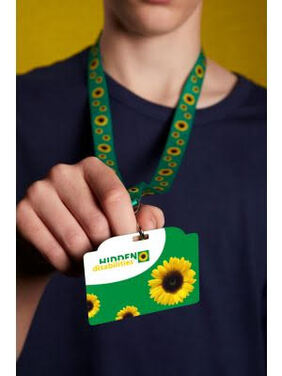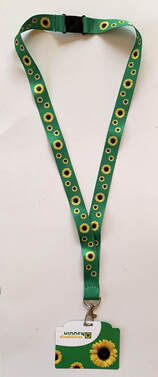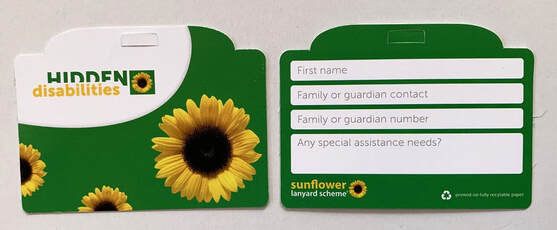Arriving at the Airport
1. Use the services offered, such as curbside check in, customer service desks, airport volunteers, wheelchair assistants, so you can expedite the process and focus on your flight and the person living with dementia.
Some of these services must be requested in advance, such as curbside wheelchair assistance or an airport volunteer to accompany you from arrival to departure.
Travelers with a sensory disability should relay any special needs directly to airport employees at each point of contact throughout the airport, including ticket counters, gates, customer service centers and baggage claim areas.
Source: https://www.united.com/ual/en/us/fly/travel/special-needs/disabilities/airport-assistance.html
2. If you are a person living with dementia and are flying alone, a caregiver or family member can usually get a gate pass from the airline desk and accompany you through security to the boarding gate.
What you should know about gate passes:
A companion can provide disability-related assistance for you at a domestic US airport. A gate pass request must be made at the ticket counter for departing flights and noted in the reservation for arriving flights. Just make sure the person assisting goes to the ticket counter to get the gate pass and brings a valid government issued photo ID. Issuance of gate passes is contingent upon security conditions at the time of travel, at different times or locations this accommodation may not be available. This accommodation is not available for non-U.S. departures or for international arrivals to the U.S.
Source: https://www.jetblue.com/at-the-airport/accessibility-assistance/intellectual-developmental-cognitive-disabilities
3. Get a wheelchair (or bring your own) and take it all the way through to the gate. You can use the special assistance line, if available.
4. Your travel party may be required to wear masks in the airport and on the airplane due to COVID-19 policies. Different airports and airlines determine these requirements. Travelers may be asked to lower their masks to verify their identity at security checkpoints. If wearing a mask causes unmanageable agitation and anxiety, it may be possible to get an exemption during pre-screening. This is something that should be prepared for ahead of time as documentation may be required. Check with the TSA coronavirus website, your airports and airlines for the latest updates on COVID-19 as policies can change quickly.
5. The Hidden Disabilities Sunflower is a globally recognized symbol for invisible disabilities including dementia. It gives the wearer the opportunity to clearly and discretely signal that they have a hidden disability and may need additional assistance as well as a time or just a little patience. The wearer does NOT have to discuss the reason for wearing it. The Sunflower lanyard does not entitle you to special privileges. More than 240 airports in 32 countries and a growing number of airlines participate in the Sunflower program. Sunflower lanyards are free from participating airports. Find out which airlines and airports participate in the Sunflower Program.
Items 1-3 adapted with permission from Carol Giuliani - Senior Travel Companion Services, LLC
Some of these services must be requested in advance, such as curbside wheelchair assistance or an airport volunteer to accompany you from arrival to departure.
Travelers with a sensory disability should relay any special needs directly to airport employees at each point of contact throughout the airport, including ticket counters, gates, customer service centers and baggage claim areas.
Source: https://www.united.com/ual/en/us/fly/travel/special-needs/disabilities/airport-assistance.html
2. If you are a person living with dementia and are flying alone, a caregiver or family member can usually get a gate pass from the airline desk and accompany you through security to the boarding gate.
What you should know about gate passes:
A companion can provide disability-related assistance for you at a domestic US airport. A gate pass request must be made at the ticket counter for departing flights and noted in the reservation for arriving flights. Just make sure the person assisting goes to the ticket counter to get the gate pass and brings a valid government issued photo ID. Issuance of gate passes is contingent upon security conditions at the time of travel, at different times or locations this accommodation may not be available. This accommodation is not available for non-U.S. departures or for international arrivals to the U.S.
Source: https://www.jetblue.com/at-the-airport/accessibility-assistance/intellectual-developmental-cognitive-disabilities
3. Get a wheelchair (or bring your own) and take it all the way through to the gate. You can use the special assistance line, if available.
4. Your travel party may be required to wear masks in the airport and on the airplane due to COVID-19 policies. Different airports and airlines determine these requirements. Travelers may be asked to lower their masks to verify their identity at security checkpoints. If wearing a mask causes unmanageable agitation and anxiety, it may be possible to get an exemption during pre-screening. This is something that should be prepared for ahead of time as documentation may be required. Check with the TSA coronavirus website, your airports and airlines for the latest updates on COVID-19 as policies can change quickly.
5. The Hidden Disabilities Sunflower is a globally recognized symbol for invisible disabilities including dementia. It gives the wearer the opportunity to clearly and discretely signal that they have a hidden disability and may need additional assistance as well as a time or just a little patience. The wearer does NOT have to discuss the reason for wearing it. The Sunflower lanyard does not entitle you to special privileges. More than 240 airports in 32 countries and a growing number of airlines participate in the Sunflower program. Sunflower lanyards are free from participating airports. Find out which airlines and airports participate in the Sunflower Program.
Items 1-3 adapted with permission from Carol Giuliani - Senior Travel Companion Services, LLC
|
Photo used with the permission of Randy Neprash
|
Photo used with the permission of Randy Neprash




